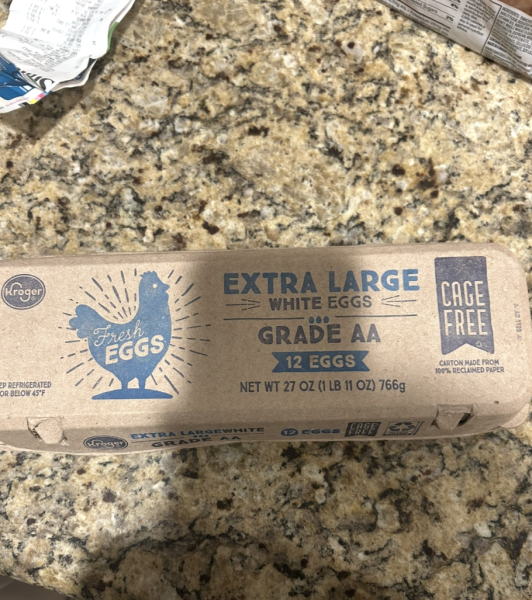According to the Independent, in 2020, the average price for a dozen eggs was about $1.51. In 2025, the price has skyrocketed to $6.23 because of the bird flu and inflation. This dramatic increase in prices has upset consumers and families across the country, and Gov. Joe Lombardo has found a way to help fix the problem.
According to the Nevada Legislature, Joe Lombardo, the Governor of Nevada, signed the Assembly Bill 171 which suspended Nevada’s cage-free egg requirement. This act addressed the rising egg prices and helped alleviate the problematic shortages Nevada has experienced. The bill allows for eggs to be sourced from caged chickens for a period of 120 days.

The governor said, “While Assembly Bill 171 will help lower the costs of eggs for up to 120 days during specific disease events or natural disasters, I strongly urge the legislature to next send a repeal of Assembly Bill 399 (2021) to my desk, so that we can permanently lower these costs and remove harmful, California-inspired legislation once and for all.”
In simple terms, the bill is suspending the requirement that all eggs are supplied from ethical, cage-free farms that have been in the system for around 4 years.
The Nevada Legislature, focused on recording different bills and laws, summarized the bill. “AN ACT relating to eggs; authorizing the State Quarantine Officer to take certain actions relating to the sale, offer or exposing for sale or transport for sale of egg products or shell eggs under certain circumstances; authorizing the State Quarantine Officer to adopt regulations relating to an order to temporarily suspend such requirements; and providing other matters properly relating thereto.” 
The Assembly Bill 399 covered protections involving the sale of eggs and its products. This included any potential health concerns like E. Coli or Salmonella that can be caused by the consumption of raw eggs.
The Nevada Legislature refers to it as, “AN ACT relating to insurance; requiring that certain policies of health insurance include coverage for certain health care to treat and care for diseases and conditions caused by raw consumption; and providing other matters properly relating thereto.”
The main purpose of the passing of Assembly Bill 171 is to lower egg prices, hopefully permanently. Currently there is little proof that this bill has made a difference, or that the egg industry has been affected in any manner. The biggest hope for Nevada is that this bill will show great effect sooner than later.
Mrs. Mason, the Shadow Ridge Publications and AP Lang teacher, has found it difficult to afford her hobbies and celebrate with her family. “The egg prices have been problematic for me. For the first time ever, we are not dyeing eggs for Easter. Because of egg prices and the scarcity of eggs, I feel like it’s a waste of money and resources,” She said. “I am trying to be much more mindful of how we are using food resources, especially eggs. I’m annoyed when I see people buying a ridiculous amount of eggs when there are families or people who really need them. This is not to say I cannot afford eggs or that I don’t buy eggs. We do, but when I used to bake a little more regularly, I have cut back.”













